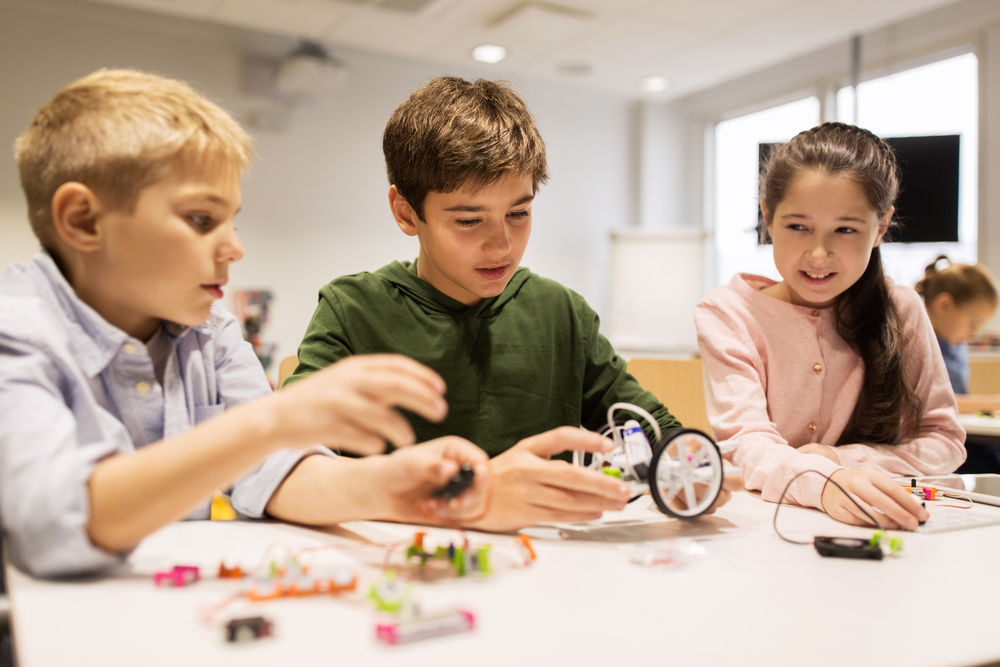Life Science Worksheets for Ages 3-7
29 filtered results
-
From - To
Explore our "Life Science Worksheets for Ages 3-7" to inspire young minds and nurture a love for the natural world. Designed specifically for preschool and early elementary children, our engaging worksheets cover fascinating topics such as animals, plants, and the human body. Through fun and interactive activities, children will develop critical thinking and observational skills. Each worksheet is crafted by educational experts to align with early learning standards, ensuring a strong foundation in life sciences. Make science accessible and enjoyable for your little explorers with our collection of age-appropriate life science worksheets!
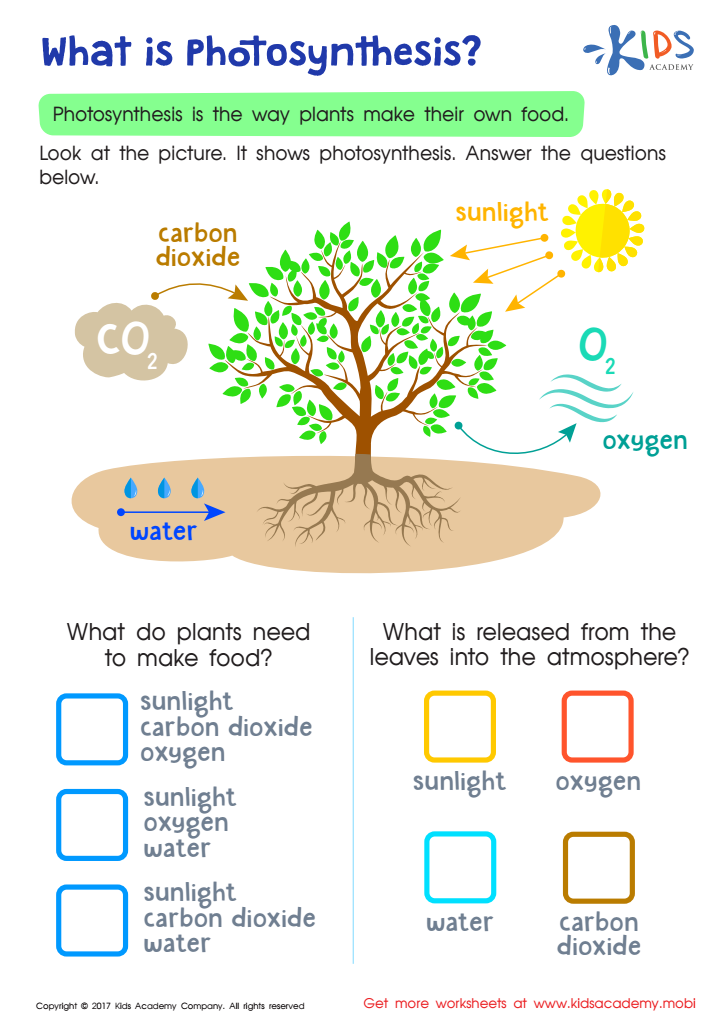

What is Photosynthesis Printable
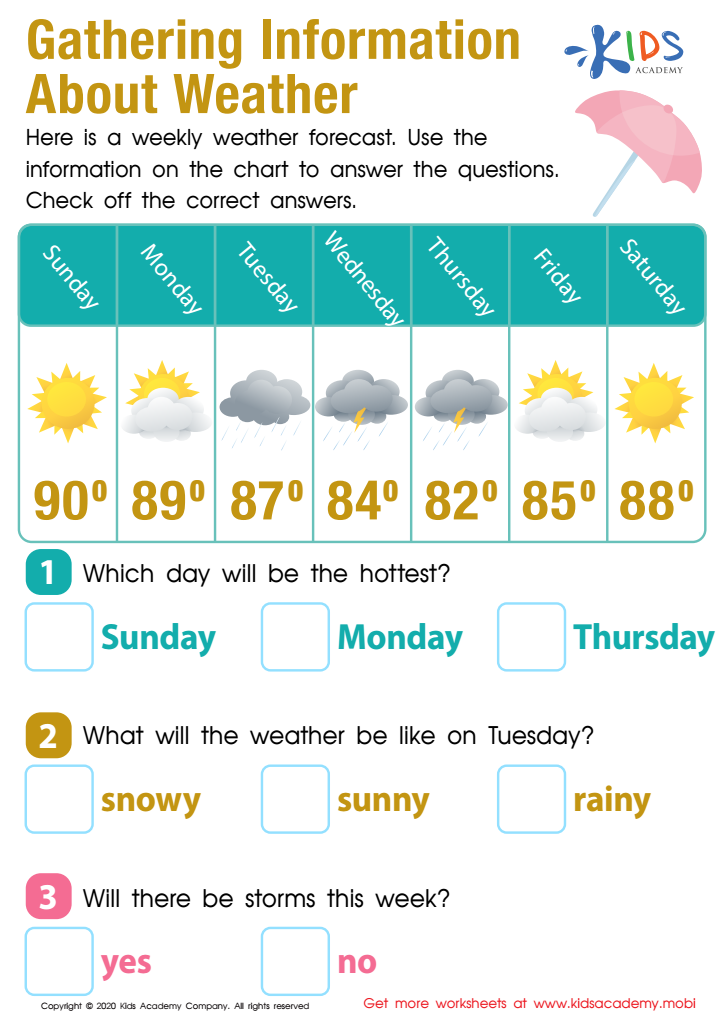

Gathering Information About the Weather Worksheet
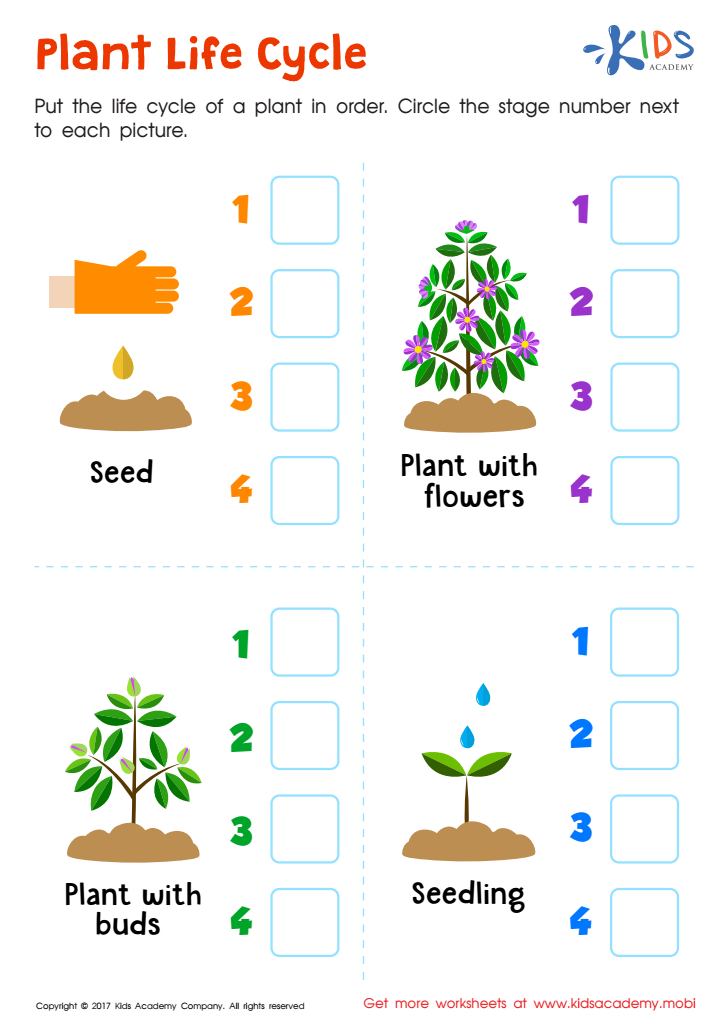

Plant Life Cycle Printable
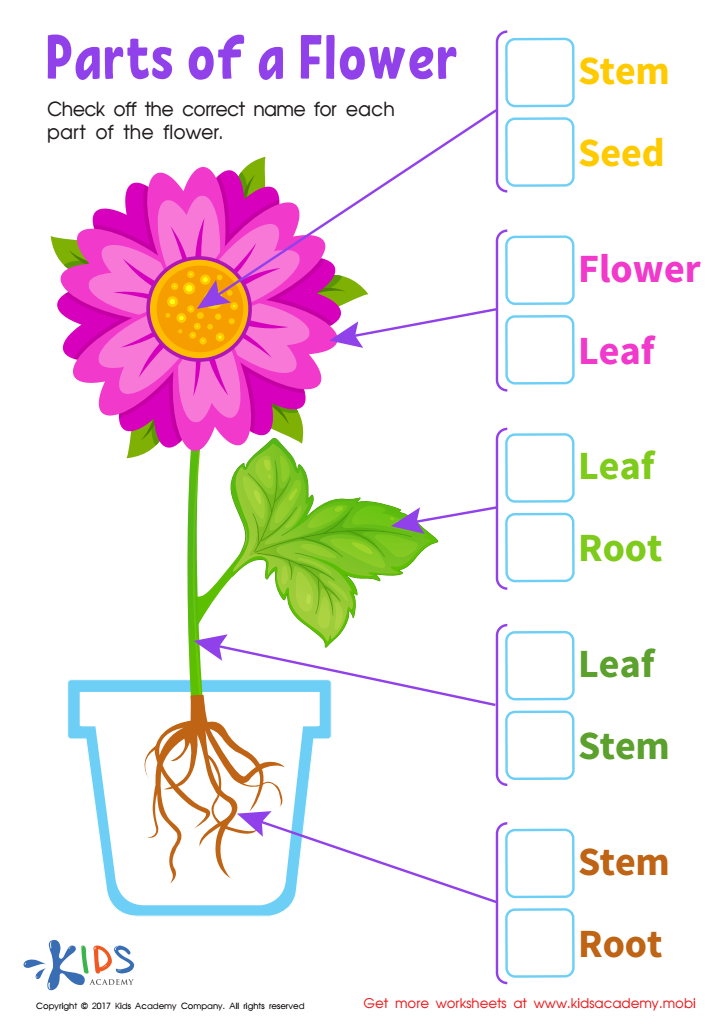

Parts Flower Printable
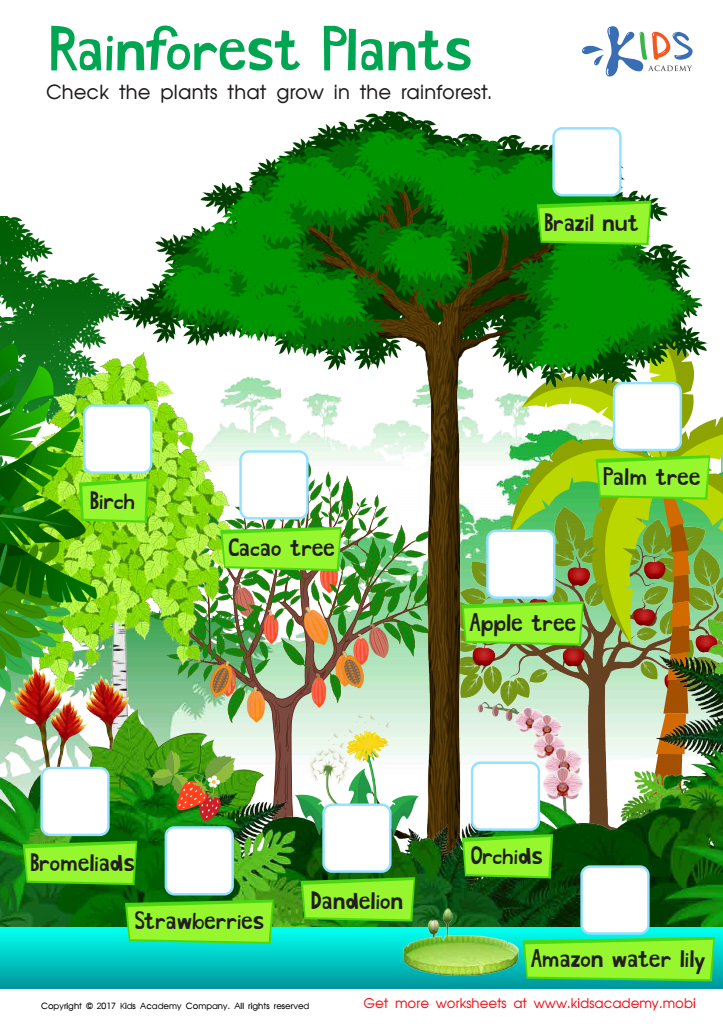

Rainforest Plants Worksheet
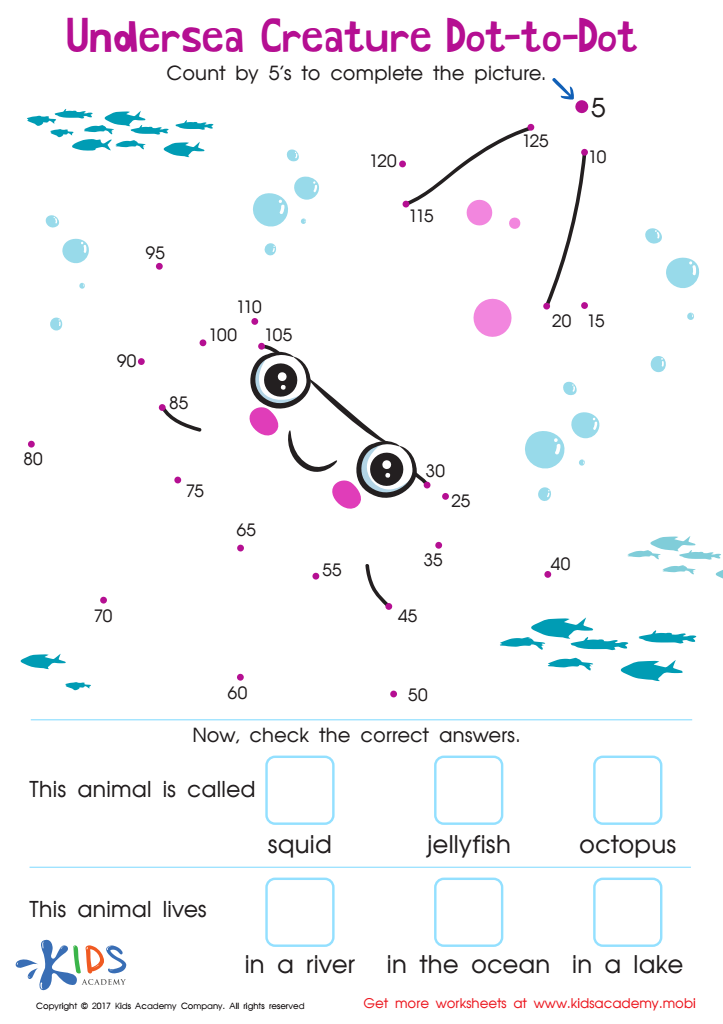

Undersea: Dot To Dot Worksheet
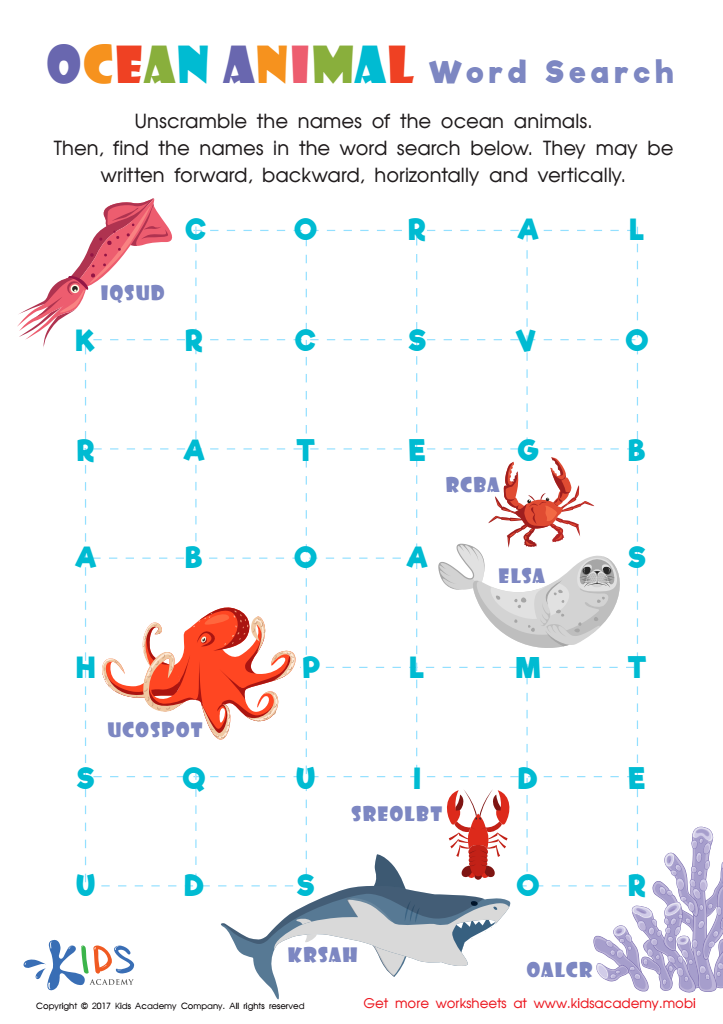

Ocean Animals Word Search Printable
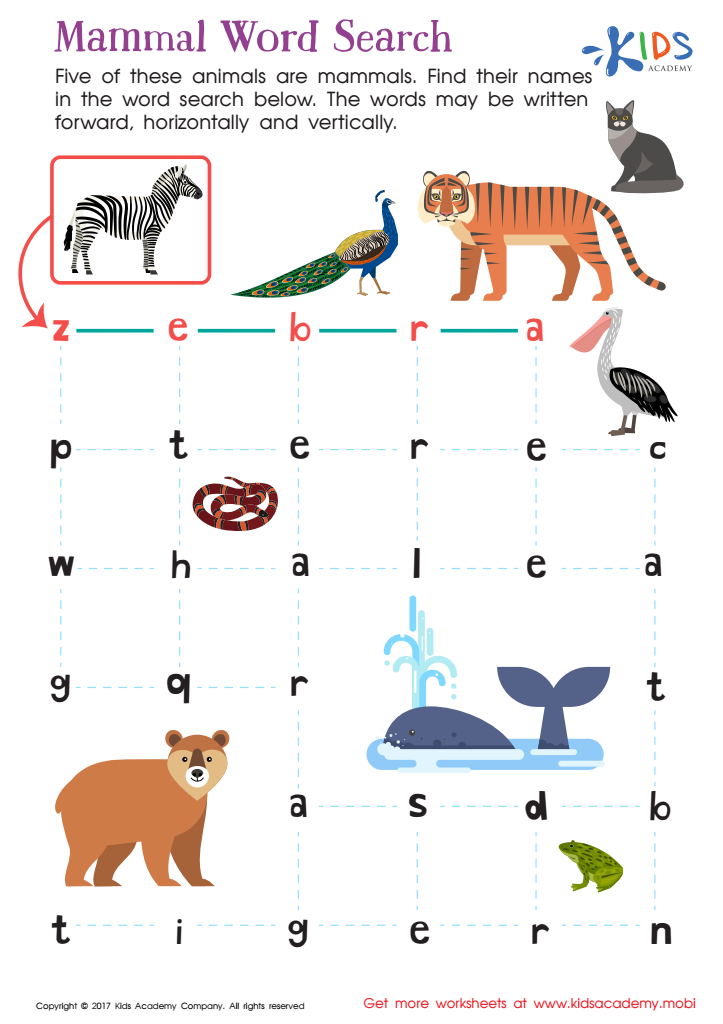

Printable Mammal Word Search


Herbivores Printable
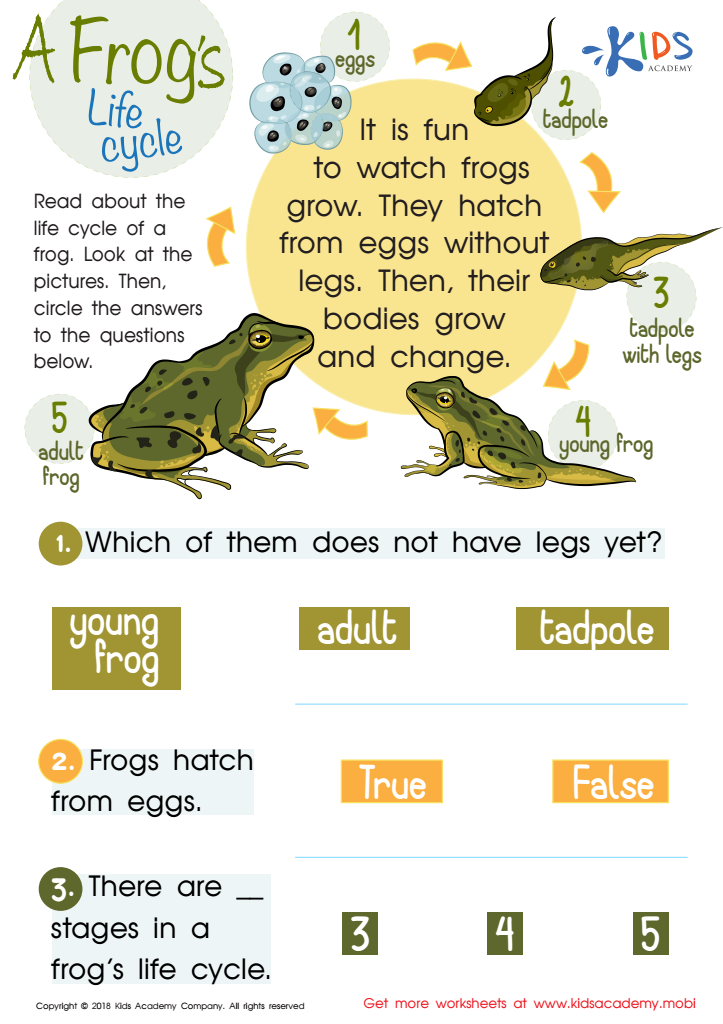

A Frog’s Life Cycle Worksheet
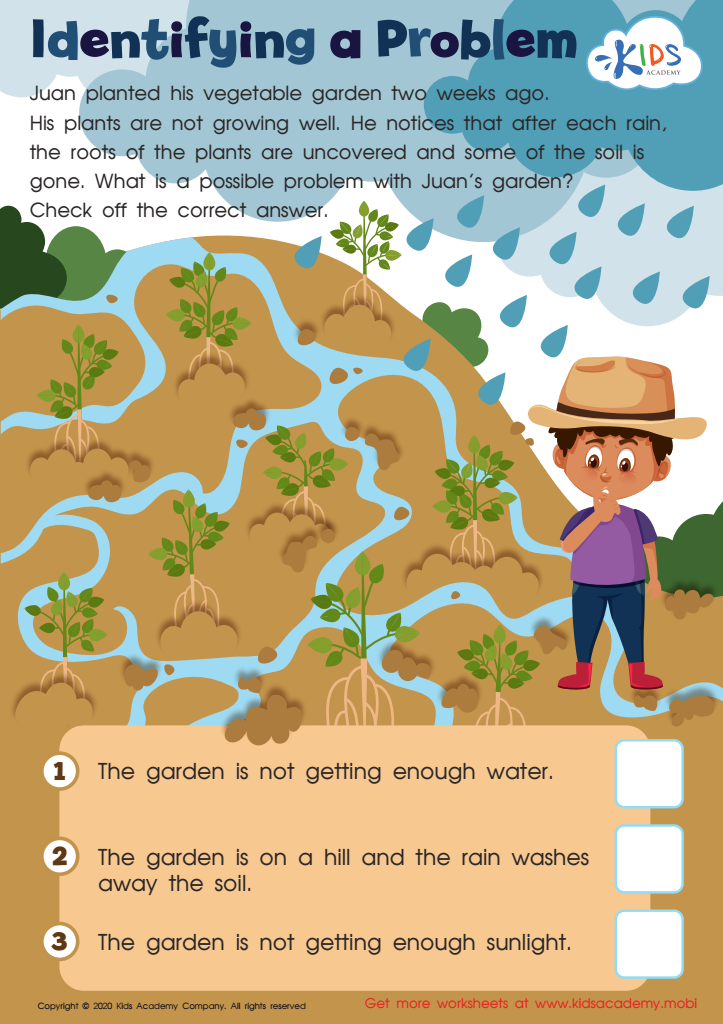

Identifying a Problem Worksheet
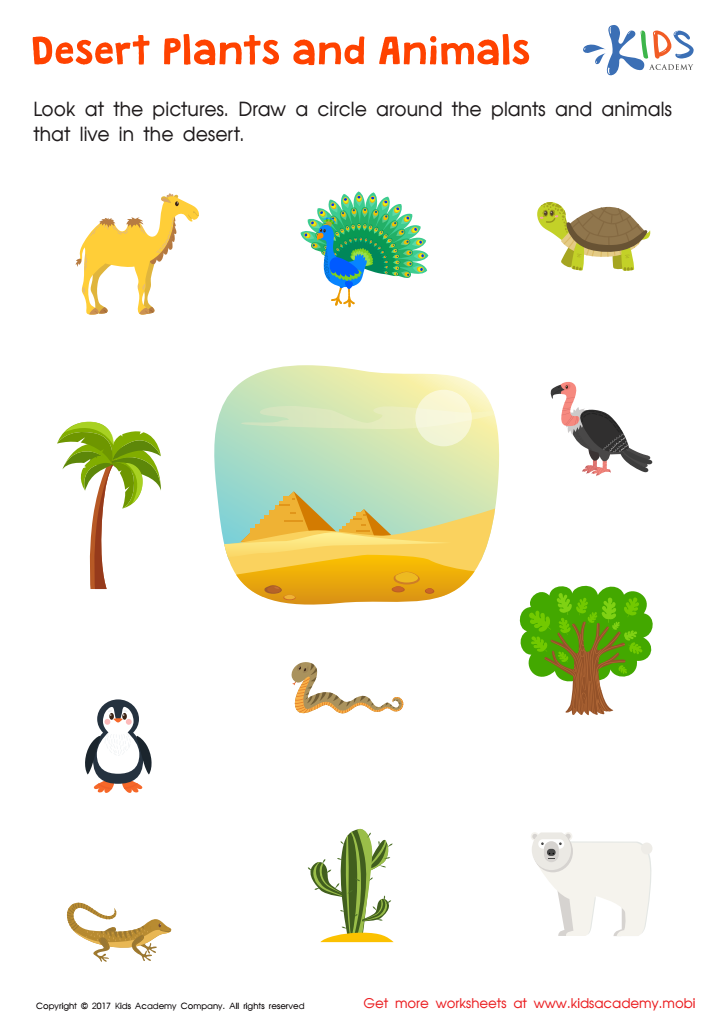

Desert Plants Animals Printable
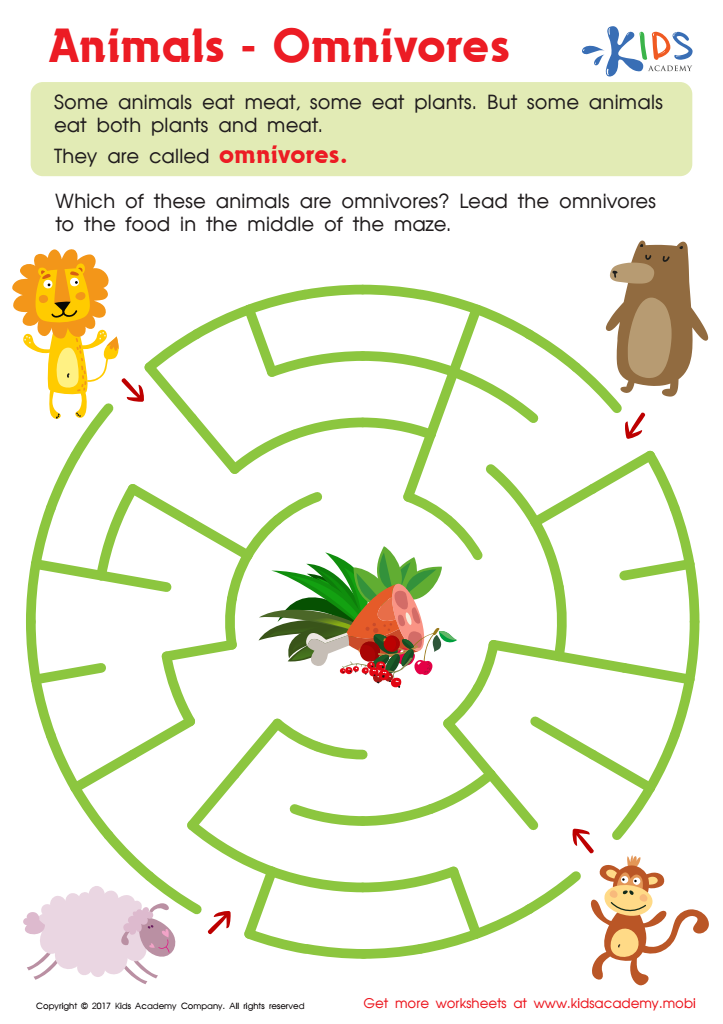

Omnivores Animals Worksheet


Carnivores Worksheet
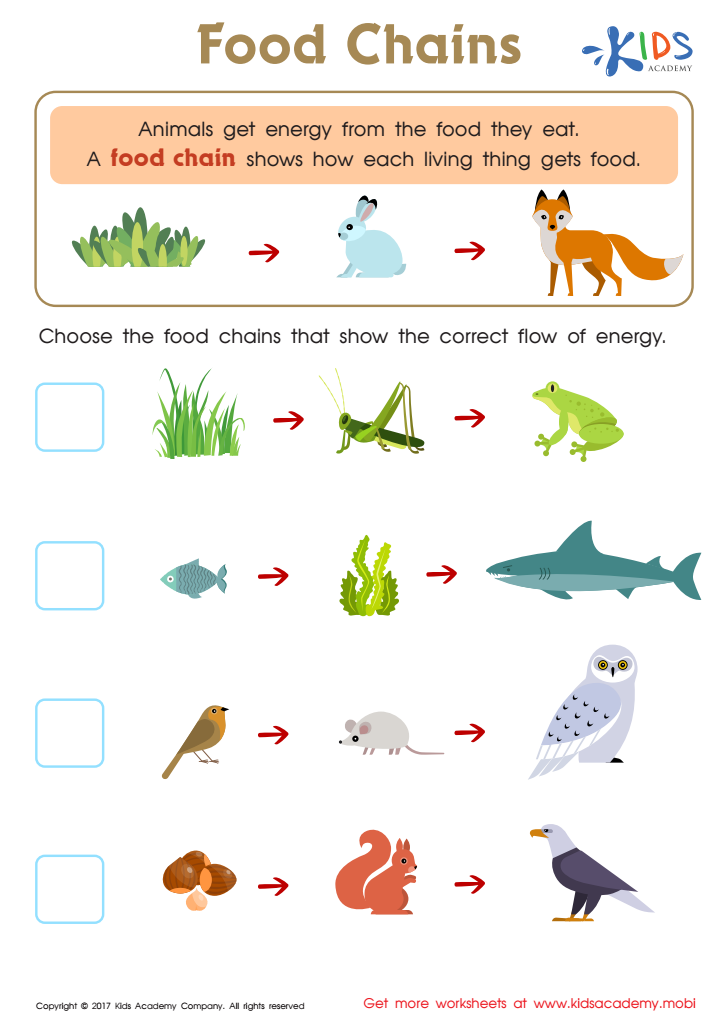

Food Webs and Food Chains Worksheet
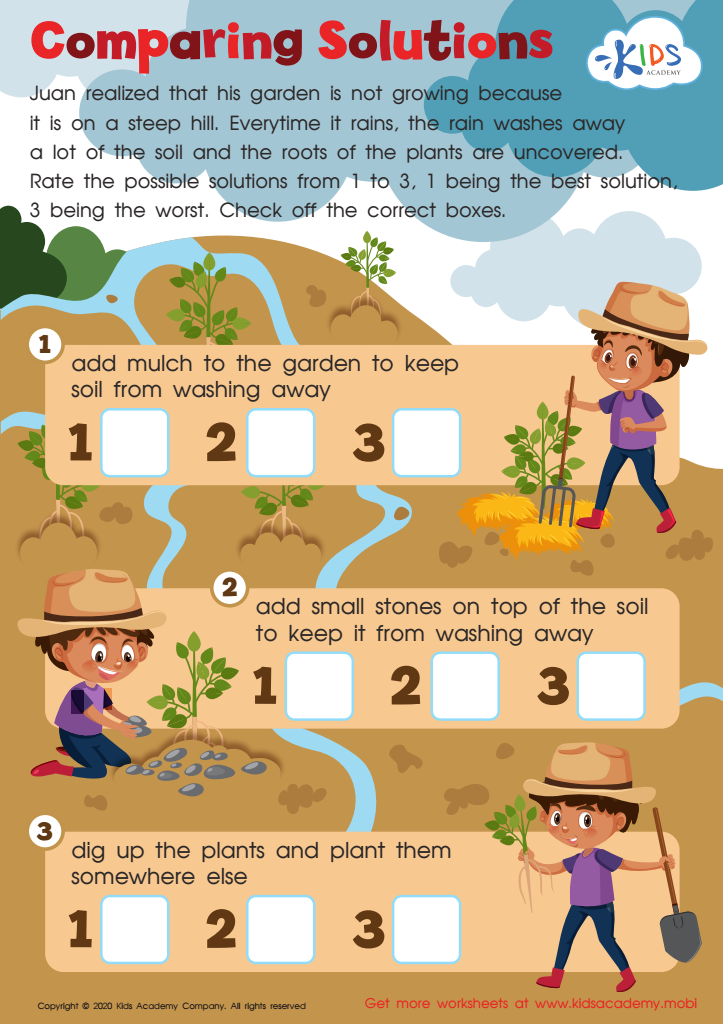

Comparing Solutions Worksheet
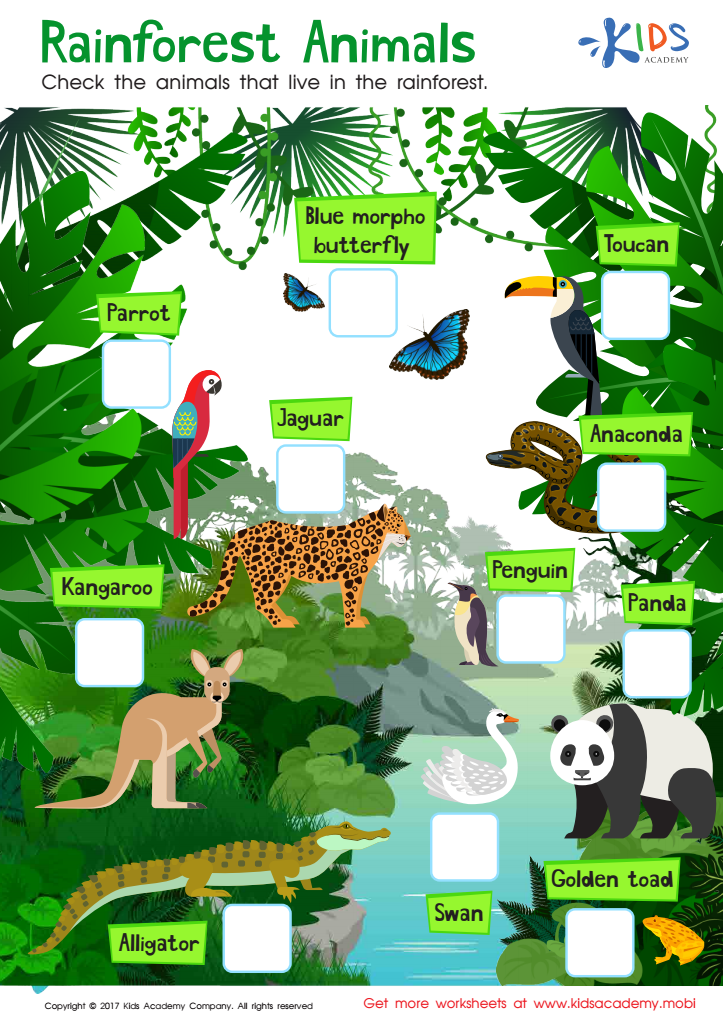

Rainforest Animals Worksheet
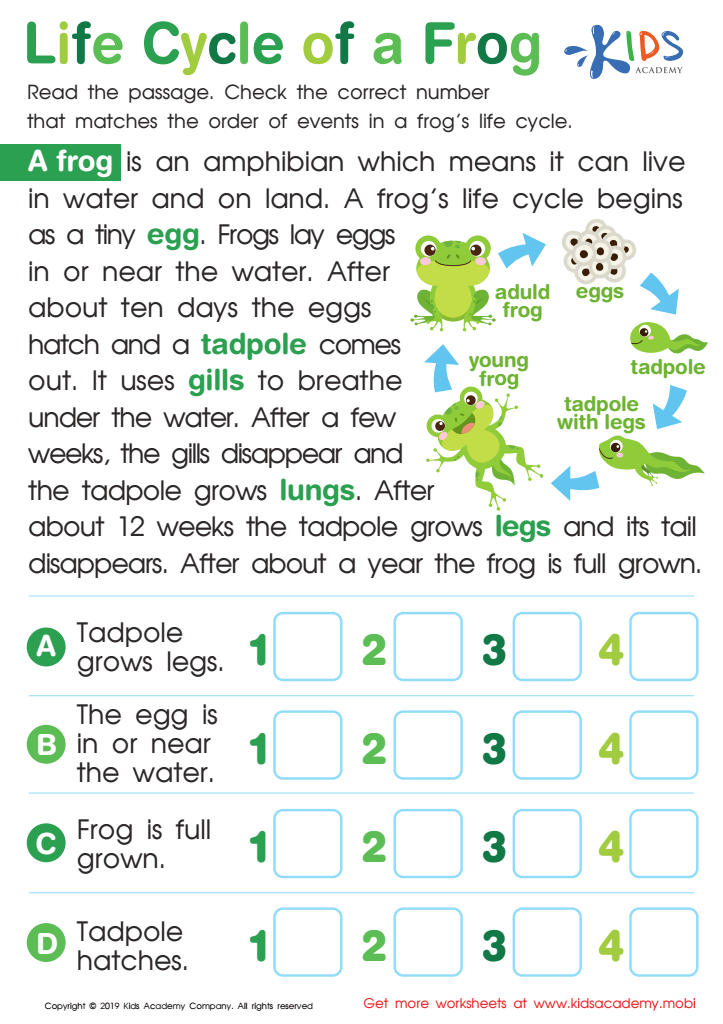

Life Cycle of a Frog Worksheet
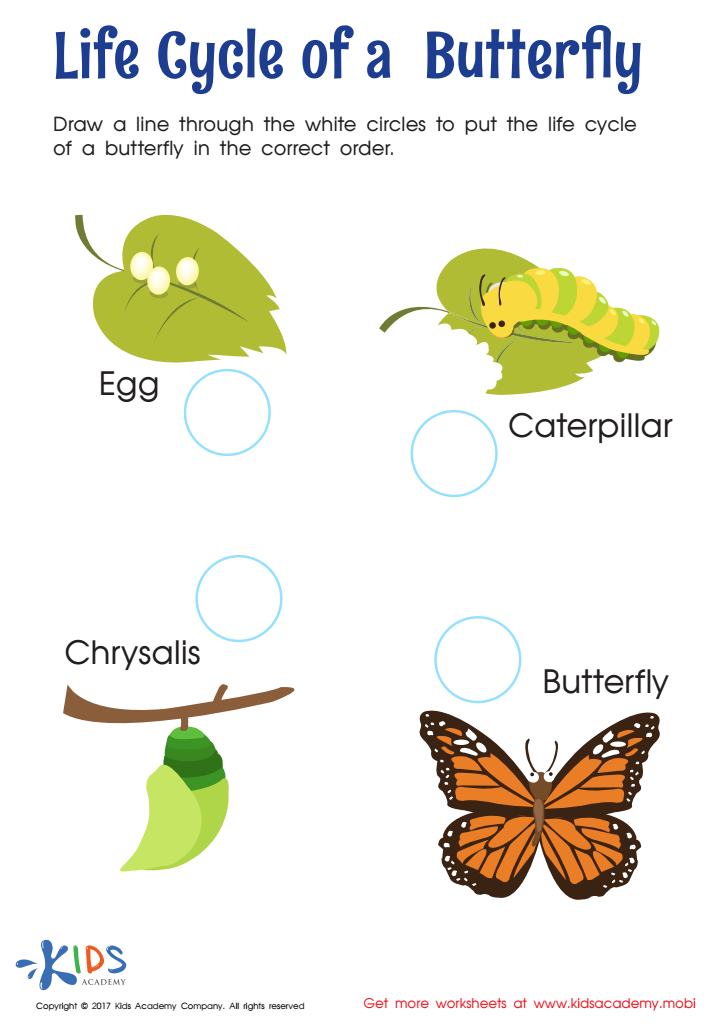

Life Cycle of Butterfly Worksheet
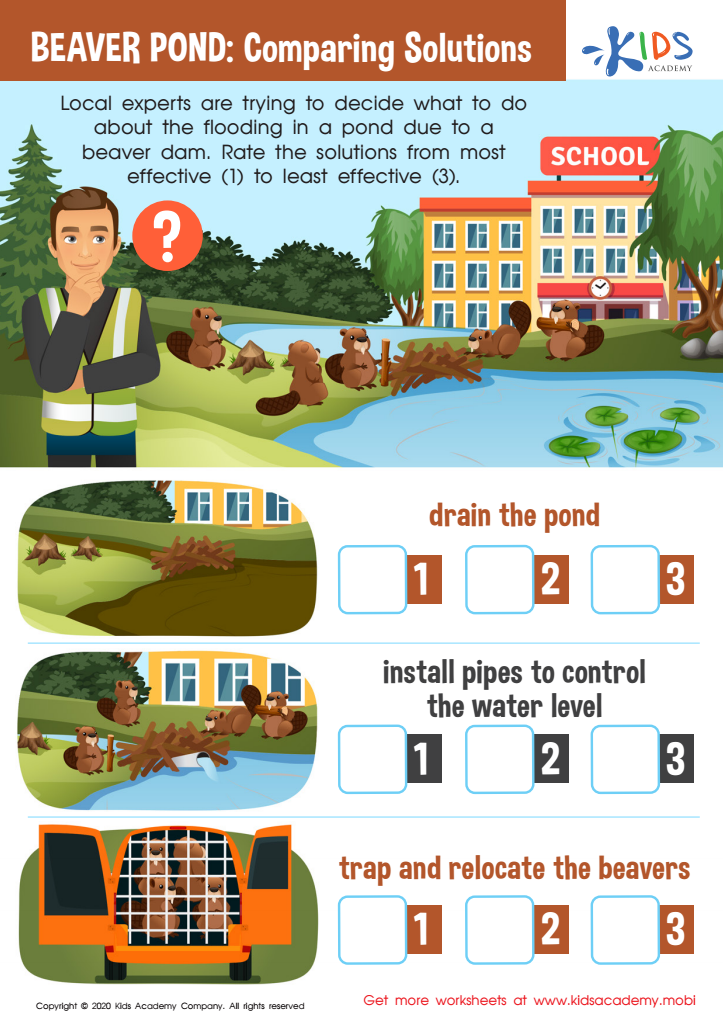

Beaver Pond: Comparing Solutions Worksheet
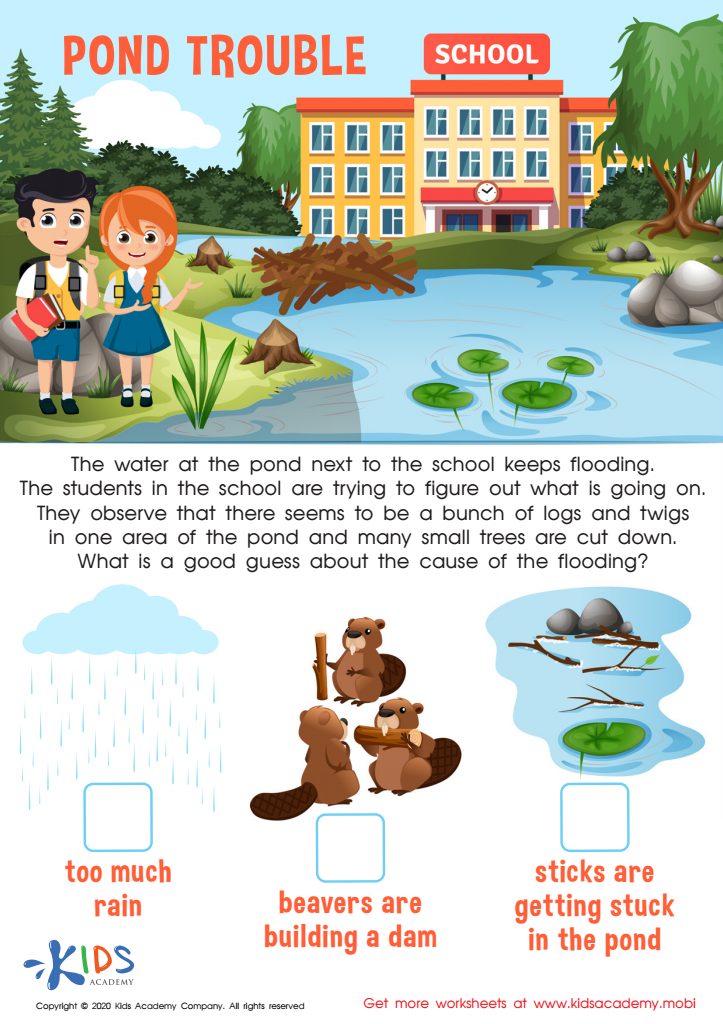

Pond Trouble Worksheet
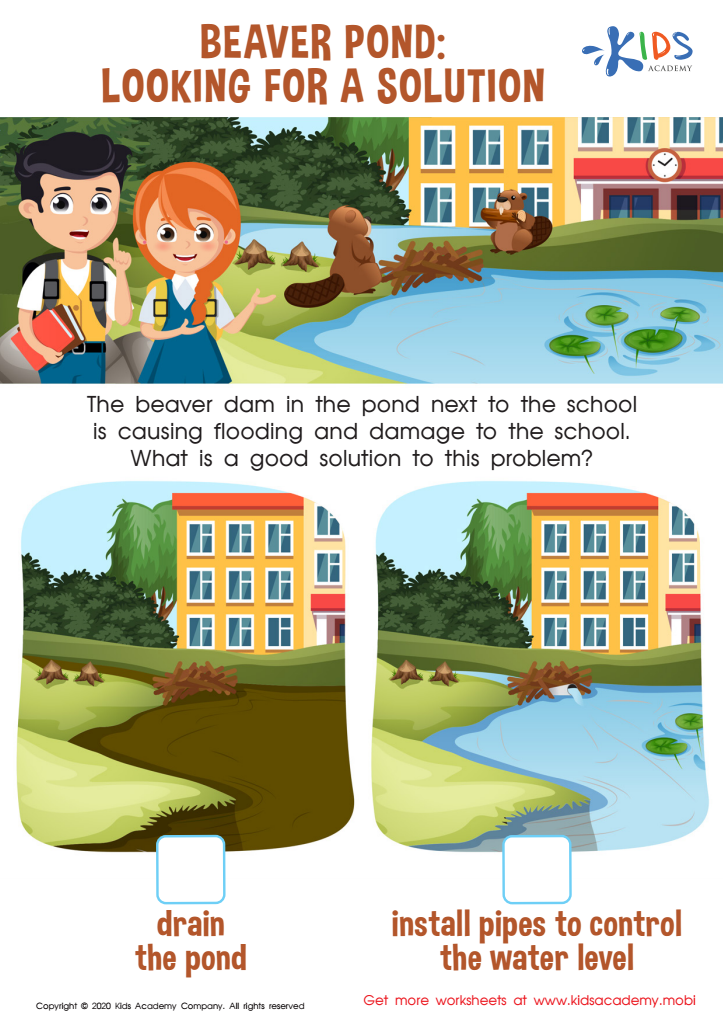

Beaver Pond: Looking for a Solution Worksheet
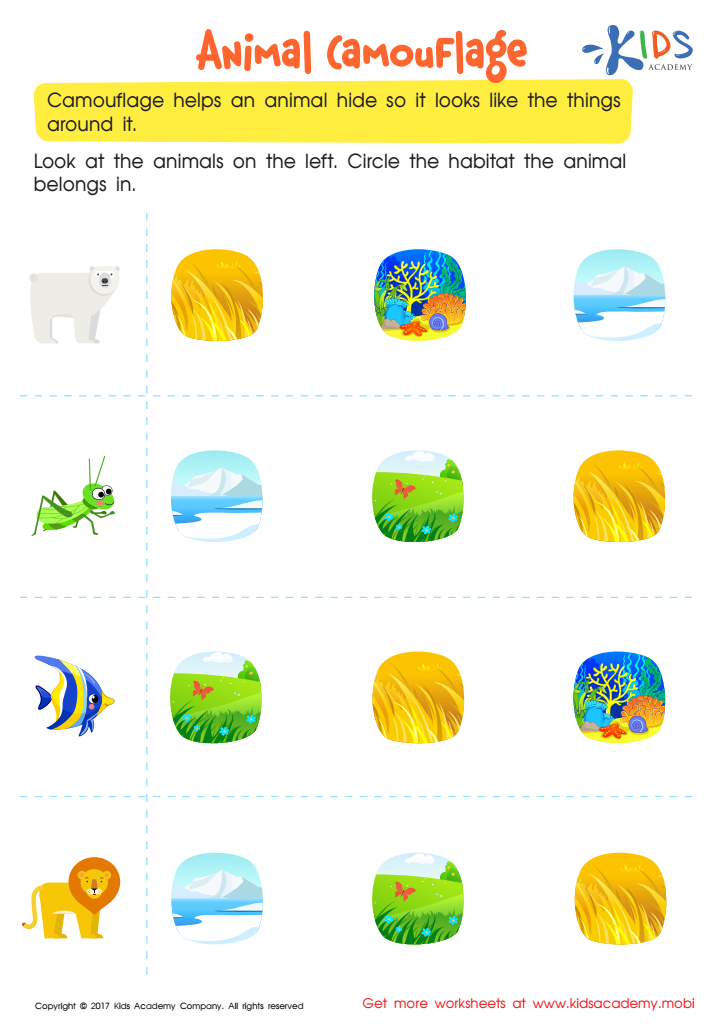

Animal Camouflage Worksheet
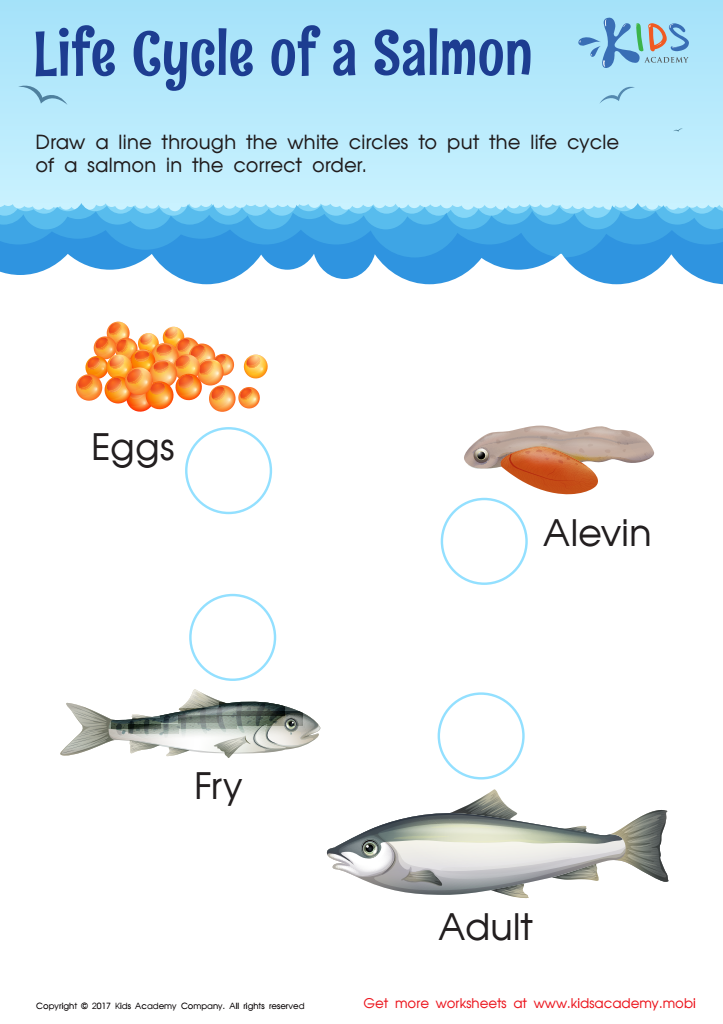

Cycle Of Salmon Worksheet
Parents and teachers should care deeply about life science education for young children ages 3-7 because it lays a critical foundation for lifelong learning and curiosity. Life science, which covers plants, animals, and environments, fosters a sense of wonder and respect for the natural world. At this formative age, children are naturally curious and absorbent; introducing them to life science stimulates their observational skills, critical thinking, and problem-solving abilities.
Understanding basic life science concepts helps children appreciate the interconnectedness of life. When young learners participate in hands-on activities like planting seeds, observing butterflies, or even caring for a class pet, they develop empathy and responsibility. These activities nurture a respect for living things and environmental stewardship, encouraging them to make informed choices that affect the world around them.
Moreover, early exposure to life science builds a strong foundation in scientific literacy and language development. Discussing living organisms and their habitats introduces new vocabulary and concepts that are essential not just in science but across various subjects. Teachers can integrate literacy, math, and art with life science to create a holistic learning experience.
Inculcating life science education at an early age ultimately promotes a sense of curiosity about the world, prepares children for more complex scientific learning later on, and fosters responsible, informed future citizens.
 Assign to My Students
Assign to My Students





